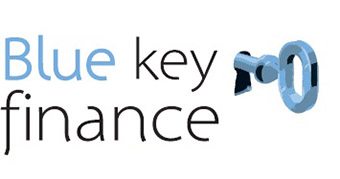Why would I take out an interest only loan?
What is an interest only loan?
An interest only loan is more or less what it says on the can: it’s a home loan where only the interest is paid, rather than both the interest and the principle.
An interest only loan can be useful for investors who can claim the interest as a tax deduction, or buyers who only plan on holding onto the property for a few years before selling it. An interest only loan may not be a good idea for standard home-buyers simply looking to pay less on their weekly repayments, because the smaller the amount of loan principal that is paid off, the more overall interest you may end up paying on your loan over the 30 year loan term.
Use our loan repayment calculator to help you calculate interest only repayments on different loan amounts with different interest rate scenarios.
Some people might view an interest only loan as an attractive choice when considering finance options for a home – particularly if their budget is tight or if there are other more exciting things they want to do with their spare cash. If you are considering an interest only loan though, it’s vitally important to weigh up some pros and cons of that type of loan.
Potential benefits of an interest only loan
Lower monthly repayments
Because you are paying only the interest component on your home loan, your monthly repayment will be comparatively lower. As an example and based on a home loan interest rate of 5%, the monthly repayment on a $300,000 mortgage over 25 years would be approximately $1,754 per month. If you were making interest only payments, the monthly cost would be approximately $1,250 per month.
Can help maximise tax deductions
An interest only loan generally presents potential benefits to investors. It allows the investor to pay only interest for an agreed period of up to five years, instead of ‘principle and interest’. This maximises the investor’s tax deductions whilst also freeing up cash flow for other investing opportunities. After all, paying off the principal means that interest would be charged on a smaller amount. This in turn reduces the dollar amount of the tax deduction.
An investor may take out an interest only loan on a property, and count on appreciation of the property to pay the principle at the end of the term.
Can free up cash to allocate to other more important goals
In the investor example above, paying interest only (with the interest being tax deductible) would free up extra cash to put towards, for example a loan that isn’t tax deductible. Or free up cash to put towards business running expenses, or the cost of studying. There are plenty of other goals that can improve our wealth over the long term to which extra cash could be apportioned.
Potential disadvantages of an interest only loan
Still needs to be paid off at some point!
Unless it’s an investment property, or a property that you are only intending to hold for a few short years, chances are that you will need to pay off the principal of the loan at some point. Most interest only loans are only available for up to five years, with the loan reverting to a P&I (principal and interest) at a set future time. Unless there is a specific (and good) reason for you to be choosing an interest only loan, you could be just delaying – at your cost – the inevitable.
Interest rates are currently low
Home loan interest rates are currently low, certainly when compared with historical rates. While there is no guarantee that they won’t go even lower, it certainly does make now a good time to pay off some of the home loan principal. That way, if rates rise in the future, you will be paying those higher rates on a reduced loan size.
Could tempt you to spend more money than you can really afford
Paying interest only frees up your cash flow – but if you end up using that extra cash to pay for day to day “stuff” rather than for additional investments or to pay down other debt it could well be wasted money. This could lead you to rely on this extra cash flow for your living expenses.
Overall, if you’re considering an interest only loan, definitely think long and hard about the potential pros and cons and get some professional advice. At the end of the day you want to be certain, whatever your choice, that you’re doing the right thing for your finances.
